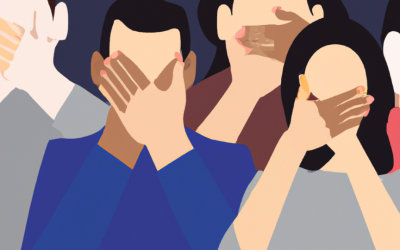As you read the title of this article, your mind probably flashes to a few negative media stories.
Perhaps you think of a young Indigenous woman’s bad experience with a Winnipeg taxi driver. Or you think of Joyce Echaquan’s suffering and death in a Quebec hospital and both the coroner’s report and a video showing that she was subjected to racist taunts that contributed to her demise. No doubt you think of the many missing and murdered Indigenous women and girls.
These stories give the impression that Canada is filled with racists who treat Indigenous people with disrespect, a generalization promoted by radio, TV, magazines, and newspapers.
But are there not more uplifting accounts that should be considered in making a judgement about whether Canada is a systemically racist country?
Of course there are. But these stories are rarely reported because bad behaviour is always more newsworthy than good behaviour.
My wife is Elaine Ayoungman-Clifton, a 76-year-old Siksika (Blackfoot) woman from a Southern Alberta reserve. On August 12 of this year, she suffered a stroke at home and minutes after calling 911, an ambulance arrived at our door. With professional and compassionate care, the attendants were quickly on their way to the Health Sciences Centre (HSC).
In under two hours, an emergency room physician phoned and said that Elaine was being stabilized and I could visit her in the emergency department. Quickly I drove from Ft. Richmond to the HSC. The security guard who was screening people entering the hospital asked for my name and the reason I was there. As soon as I replied, he immediately escorted me through the waiting area to where Elaine was lying on a gurney hooked up to tubes and wires. Obviously, the physician had told him to expect me.
Two nurses told me what they were doing and what the machines were monitoring. In an hour or so, a resident neurologist came and showed me a scan of the pool of blood in my wife’s brain. He carefully explained what had happened, and what they were trying to do for her.
That evening she was moved to a restricted neurological unit so I was unable to visit her for the next 16 days. But I phoned the unit daily to get an update on her progress and treatment. The nurses were always clear, concise, and caring in their responses to my concernes.
On the 17th day she was moved to Concordia Hospital where she stayed for another 16 days, and I could visit her. Finally, on September 14th, more than a month after her stroke, my wife was transferred to the Riverview Health Centre for further care and rehabilitation.
In all this personal trauma and sadness, there is some good news for Canadians.
Elaine was always treated with care, kindness, and respect. Many of the hospital people were in fact joyful, lifting up her spirits even though she was seriously ill. They had a positive attitude towards the other patients too. One of the aides told us “I love my job. I love helping people.”
It is obvious that Elaine is Indigenous, and it is equally obvious that no one considered her ethnicity in interaction with her. To both of us, the people working on the Stroke Rehabilitation Unit at Riverview treated her in extremely positive ways. Their kind words, encouragement, and praise helped her improve.
We know that hospitals are in the middle of the COVID pandemic, and consequently the medical and support staff are under additional pressure. Even so, the treatment that my wife received has been impressive. To us, these people are angels, and we are extremely thankful for their supportive work.
We don’t expect this incident to offset the negative stories about the treatment of Indigenous people in the public media, but we hope that readers will think twice before claiming that institutional racism against Indigenous people is endemic in our country.
Rodney A. Clifton is a professor emeritus at the University of Manitoba and a senior fellow at the Frontier Centre for Public Policy. His recent book, From Truth Comes Reconciliation: An Assessment of the Truth and Reconciliation Commission Report has been co-edited with Mark DeWolf, and can be ordered from Amazon or the Frontier Centre for Public Policy (https://fcpp.org/books-3/).



